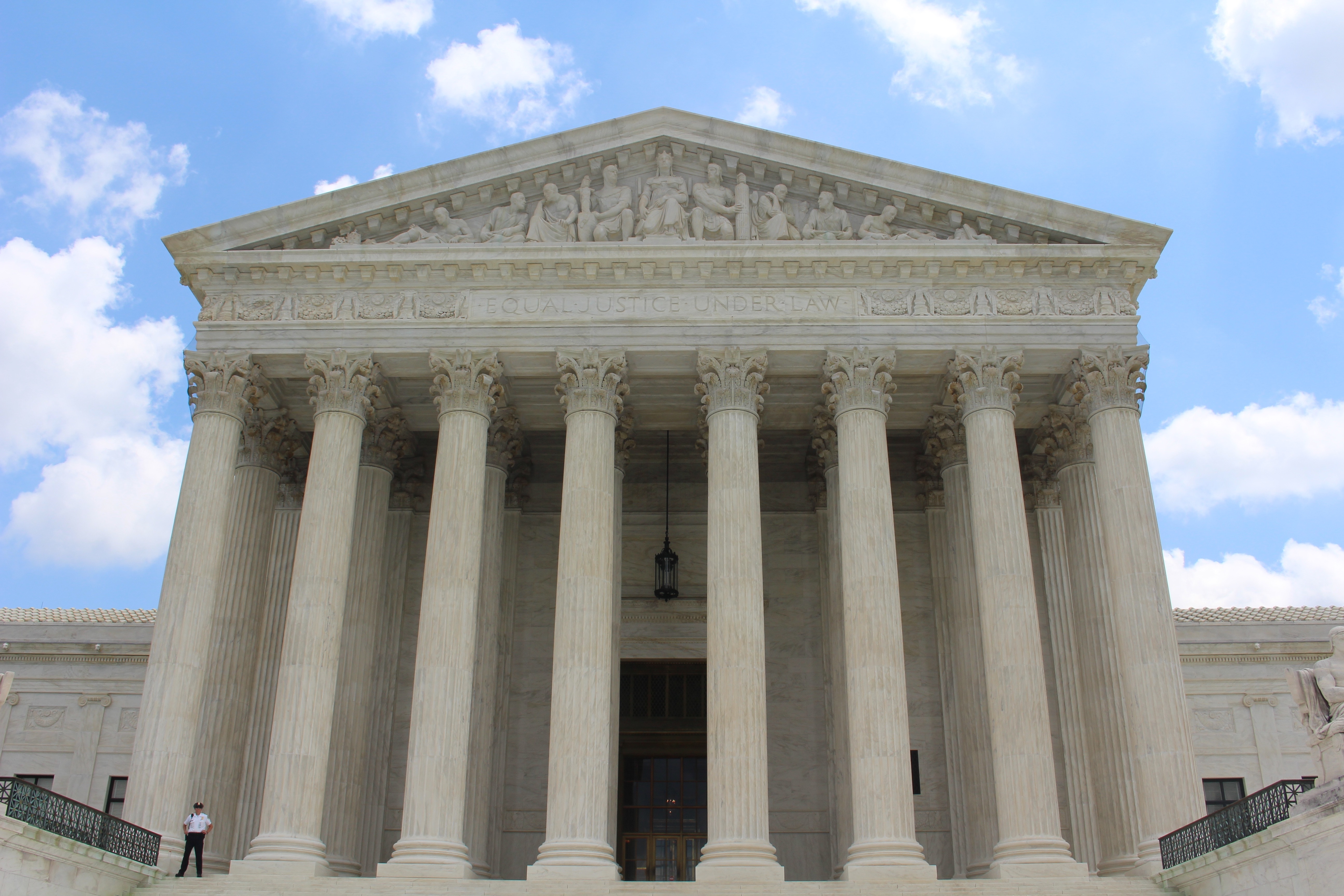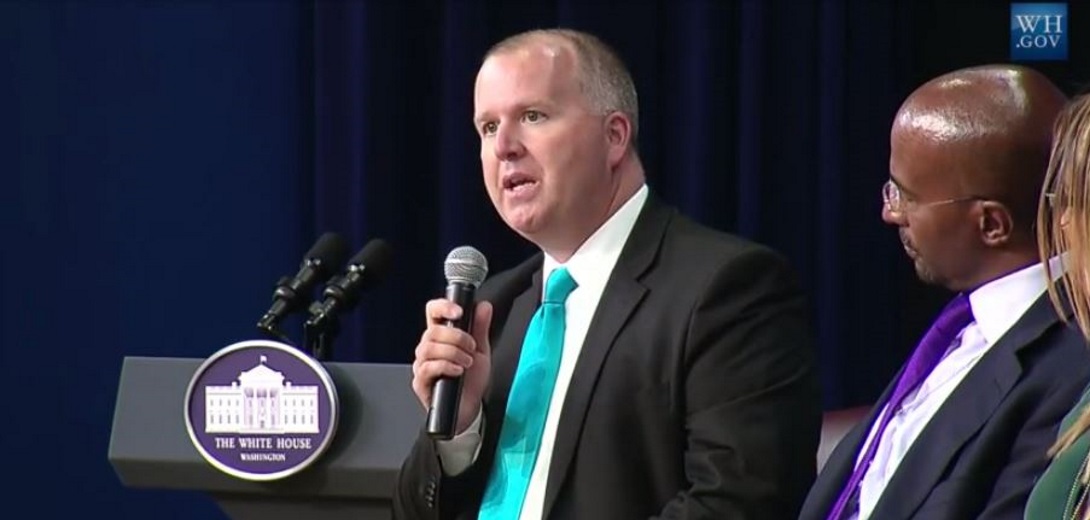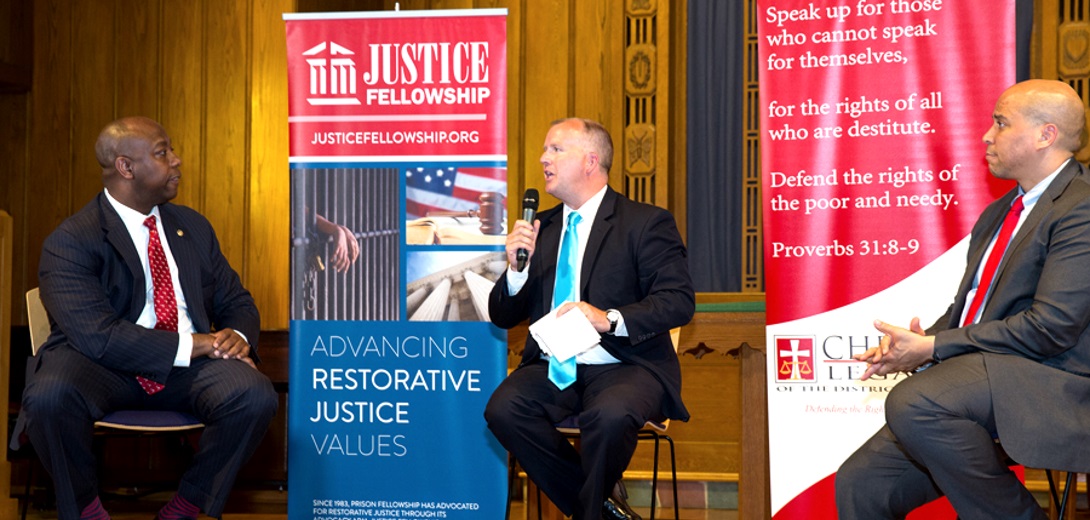
Dr. Zachary Hamilton sat down with Prison Fellowship to talk about risk assessment, avoiding racial disparities, and rehabilitation of prisoners.

Dr. Zachary Hamilton sat down with Prison Fellowship to talk about risk assessment, avoiding racial disparities, and rehabilitation of prisoners.
“For me, having a husband that’s incarcerated, it’s like we’re incarcerated too.”
Shamika Wilson is expressing the experience of many who have a family member behind bars. In a short video produced by Al-Jazeera, Wilson and several other people who have had their families separated by incarceration express the challenges—financial, emotional, and even physical—of having a spouse, a sibling, or a parent in prison.
The following is a version of remarks given by Prison Fellowship President and CEO Jim Liske at Movement Day NYC, a gathering of Christian leaders discussing how to cultivate Gospel movements in urban areas across the country. For more information about Movement Day, visit www.movementday.com.
Speaking in front of an audience at a New Jersey drug treatment center, President Obama announced on Monday the passing of an executive order that will prevent employers from asking potential federal employees on their job applications if they have a criminal record.

Last Friday afternoon, Prison Fellowship’s Craig DeRoche, senior vice president of policy and advocacy, joined President Obama at the White House for a preview of HBO VICE’s upcoming special “Fixing the System,” a documentary on the current state of America’s criminal justice system and what can be done to improve it.
An 1865 engraving of the Baltimore City Jail. Maryland Governor Larry Hogan recently closed the prison for its unsanitary conditions. (Click to enlarge.)
The Baltimore City Detention Facility has a well-earned reputation for being one of the worst jails in the United States.

Saul Green was laid off after 3 ½ years at a job when employers found past criminal charges. Today, he remains unemployed, despite wanting to work and having applied for over 125 jobs over the past 18 months. His unemployment is a collateral consequence of petty crimes that he committed over 15 years ago.
It’s altogether too easy for those of us with little or no connection to prison to dismiss and ignore the men and women behind bars. Content to live our own lives, we are quick to conclude that the incarcerated “got what they had coming to them,” and to write them off as inconsequential.
April 19-25 is National Crime Victims’ Rights Week (NCVRW), and Justice Fellowship, the public policy arm of Prison Fellowship, is examining the six values in its restorative justice framework that pertain to victims of crime.
Today, we highlight the restorative justice value of validation.
April 19-25 is National Crime Victims’ Rights Week (NCVRW), and Justice Fellowship, the public policy arm of Prison Fellowship, is examining the six values in its restorative justice framework that pertain to victims of crime.
Today, we highlight the restorative justice value of restitution.
April 19-25 is National Crime Victims’ Rights Week (NCVRW), and Justice Fellowship, the public policy arm of Prison Fellowship, is examining the six values in its restorative justice framework that pertain to victims of crime.
Today, we highlight the restorative justice value of information.
April 19-25 is National Crime Victims’ Rights Week (NCVRW), and Justice Fellowship, the public policy arm of Prison Fellowship, is examining the six values in its restorative justice framework that pertain to victims of crime.
Today, we highlight the restorative justice value of protection.
The following post originally appeared on the Justice Fellowship blog.
In a perfect world, people wouldn’t commit crimes. They wouldn’t hurt one another or themselves.
In a perfect imperfect world, people who committed crimes would receive a just punishment, one that was proportionate to the harm they had caused.
In the highly partisan environment of Washington, DC, there is precious little on which policy makers and influencers on both sides of the political divide can agree. The subject of criminal justice reform, however, appears to be one of the few where Republicans and Democrats are willing to work together to enact meaningful change.
A version of the following post originally appeared on the Justice Fellowship weblog
Justice Fellowship applauds today’s unanimous Supreme Court’s decision in Holt v. Hobbs, which upheld the right of a Muslim prisoner to grow a ½ inch beard in accordance with his religious beliefs.
Restoration Partners give monthly to bring life-changing prison ministry programs to incarcerated men and women across the country.
JOIN NOW